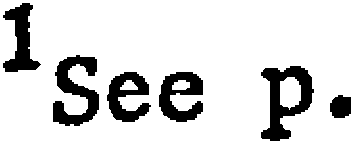In the case of trustworthy/untrustworthy, 24.7 per cent believed
Australians were trustworthy, 18.3 per cent believed they were
untrustworthy, with 57.0 per cent opting for mid-point. This
■V
result may be seen to reflect the uneasy relationship between the
two groups, historically, and the unwillingness to stereotype the
’Australian* group as trustworthy. There is one negative characteristic
4
given support:
drink too much
59.8%
The stereotypes of ’Australians’ were thus of people who eareɔ
for possessions, who are motivated, are good providers, good parents,
*
people with a purpose in life, friendly people who drink too much.
It is possible to see here not only a statement of perception of
’Australian’ society, but a rejection of stereotypes of Aboriginal
society.
Recurring themes in Aboriginal literature document the antithesis
of the characteristics noted for white society: v.
Aborigines lack the ability to care for houses
They neglect their children
They are unable to keep jobs
They lack a sense of purpose
They lack motivation.
Looking ahead to Schedule II replies1 we know that of this group of
Aboriginal respondents, 51.7 per cent believed that Aborigines should
merge into the community (Statement 29); (27,0 per cent were ’not sure’,
*
and 21.4 per cent believed Aborigines should not ’merge’). In
general, we are looking at a group’stereotyping the mainstream society
with which they believe they should merge.
In stereotyping Australians as drinking too much, the image may
or may not be negative. It may be that drinking continues to be seen
as a white pursuit, a proof of being accepted as a human being, part
of the white society towards which the Aborigine is oriented.

More intriguing information
1. Labour Market Institutions and the Personal Distribution of Income in the OECD2. Evolutionary Clustering in Indonesian Ethnic Textile Motifs
3. Rural-Urban Economic Disparities among China’s Elderly
4. A Rare Presentation of Crohn's Disease
5. The name is absent
6. The name is absent
7. The Effects of Attendance on Academic Performance: Panel Data Evidence for Introductory Microeconomics
8. Performance - Complexity Comparison of Receivers for a LTE MIMO–OFDM System
9. Measuring and Testing Advertising-Induced Rotation in the Demand Curve
10. FDI Implications of Recent European Court of Justice Decision on Corporation Tax Matters